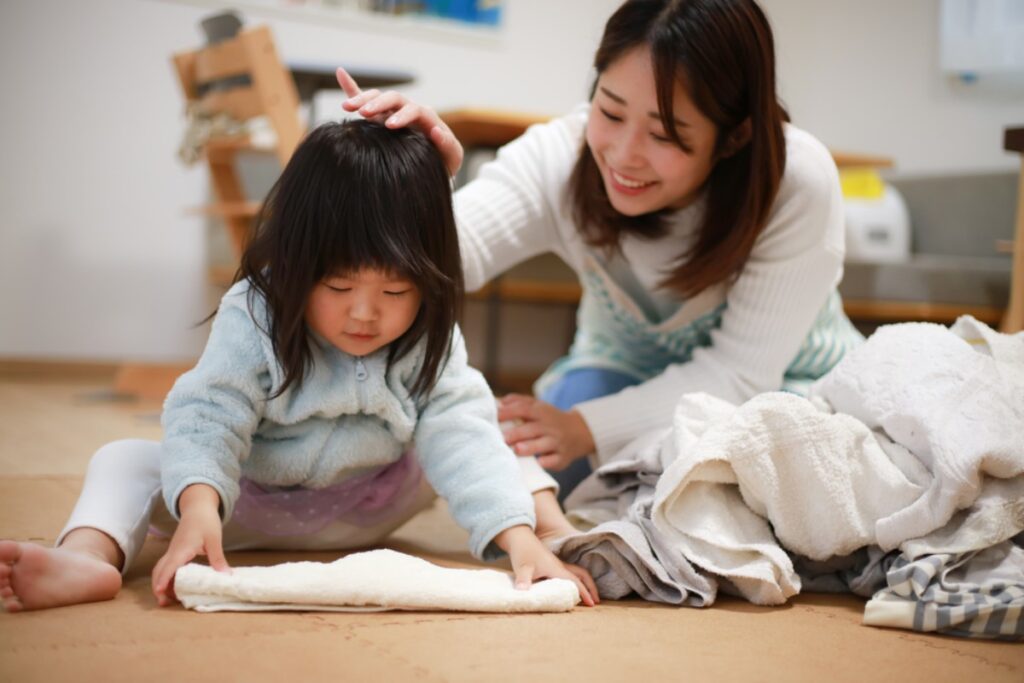10 Well Meant Compliments That Hurt Kids More Than Help
Finding the right way to encourage kids isn’t always easy. Sometimes, the compliments we give with the best intentions can have effects we never expected.
The way you praise your child can shape their confidence and how they feel about themselves over time. Knowing which compliments might hold them back can help you support their growth in a positive way.
“You’re so smart!” Can create pressure to always be perfect

Telling your child, “You’re so smart,” might sound uplifting. It can also make them feel like they have to be perfect all the time.
They may worry about making mistakes or failing. This kind of praise focuses on what your child is, not what they do.
Kids might become afraid to try new things where they might not succeed right away. They could start to believe their value depends only on being smart.
Try praising effort and hard work. Saying, “You worked really hard on that,” helps your child feel proud of what they can control.
This encourages them to keep learning, even when things get tough.
“You’re my little genius” Sets unrealistic expectations

Calling your child “my little genius” sounds sweet. It can also create pressure to always live up to that label.
Your child might think they have to be smart all the time. Worrying about failing or making mistakes can make learning stressful.
It’s more helpful to praise effort and determination. You can say things like, “You worked really hard on that,” or “I’m proud of how much you tried.”
This teaches kids that mistakes are okay and that trying matters most. Focusing on effort helps your child feel safe to take risks and learn new things.
Praising innate talent over effort – Can reduce motivation

When you praise a child only for being naturally talented, it might seem encouraging. But it can make them feel like their success depends on being “smart” or “gifted.”
If they face a challenge, they may worry it shows they aren’t really talented. This can cause your child to avoid hard tasks or give up easily.
Focusing on effort helps your child see that working hard leads to growth. When you notice their effort, they learn that they can improve with practice.
Instead of fearing failure, they start to see mistakes as a part of learning. Praising small steps and hard work shows that progress comes from trying, not just natural talent.
You did that so fast! – Encourages rushing over quality

When you tell a child, “You did that so fast!” it might seem like praise. It often pushes them to hurry instead of doing their best.
Kids may start rushing through tasks just to get your approval. This can make them miss important details or make more mistakes.
Over time, it might affect how well they learn or complete their work. Instead of focusing on speed, notice how well they did something.
Saying things like, “You did a great job paying attention” helps them value quality. Encouraging patience and effort teaches kids to take their time and enjoy learning.
You’re such a good boy/girl – Focuses on approval, not actions

Saying, “You’re such a good boy” or “good girl,” can make your child think they need to be perfect to be loved. They might worry they are only accepted when they behave well.
This can make them focus on pleasing others instead of understanding why their actions matter. Try to praise what your child actually does.
For example, say, “Thank you for sharing your toys” or “You worked hard on cleaning up.” This helps them see that their actions are important, not just being seen as “good.”
Focusing on specific behaviors helps your child learn what is right. It also builds confidence because they feel valued for what they do.
Backhanded compliments like “You look nice today” – Can confuse kids

When you say things like “You look nice today,” it might seem like a kind compliment. Kids can hear it as if they don’t look nice on other days.
If you give a compliment that sounds like a surprise, it might feel like you expect less from them. Kids might think they need to prove themselves to get praise.
Backhanded compliments can make kids worry about their appearance or actions. They may start to believe that being good isn’t enough unless it’s exceptional.
Instead, try to give clear, honest compliments. Say exactly what you appreciate.
Using comparisons like “Why can’t you be like your sibling?”

When you say, “Why can’t you be like your sibling?” it can hurt your child’s feelings. It makes them feel like they are not good enough the way they are.
Each child is unique and learns in their own way. Comparisons can cause your child to doubt themselves.
They might start to think they will never meet your expectations. This can lead to low self-esteem and problems with confidence.
Instead of comparing, focus on your child’s own strengths. Praise their efforts and progress.
Using comparisons may make your child feel like they are competing for your love. Showing kindness and patience supports their growth better than comparisons.
Overpraising simple tasks – May make kids avoid challenges

Praising your child for every tiny thing can backfire. If kids always get big compliments for easy tasks, they might start thinking they don’t need to try harder.
They may avoid harder challenges because they fear losing praise. When effort doesn’t bring the same reaction, kids can feel discouraged.
If you want your child to enjoy learning, focus on praising their hard work, not just the result. This helps them see value in trying, even when it’s tough.
Overpraising simple tasks can also make kids depend on constant approval. Encourage kids to take risks and learn from mistakes.
That’s easy for you! – Dismisses effort behind success

When someone says, “That’s easy for you!” it can make you feel like your hard work doesn’t matter. It sounds like they think you got lucky or had an easier path.
You might feel like your challenges are being ignored. Everyone works hard in different ways, but this kind of comment can make you doubt yourself.
This phrase can also make you less likely to ask for help. If people think things come easy to you, they might not understand when you really need support.
It’s important that effort is seen, not just outcomes. Try to show that you understand it took time and work.
Recognizing effort helps people feel valued and motivated to keep going, no matter how hard a task might be.
Complimenting appearance over personality – Skews self-worth

Think back to when you were a kid. Did you ever feel like people cared more about how you looked than who you were?
When adults focus mainly on a child’s appearance, it teaches them that looks matter most. Over time, this can make kids believe their value depends on their outward image.
Compliments about looks might seem harmless, but they can add pressure. Children may start to worry about always needing to look a certain way just to feel good about themselves.
Try noticing and mentioning a child’s kindness, creativity, or effort instead. These kinds of compliments help them feel proud of who they are inside.
Kids who hear praise for their actions and character learn that their worth goes far beyond what’s on the surface. This sets them up for stronger, more lasting confidence as they grow.







